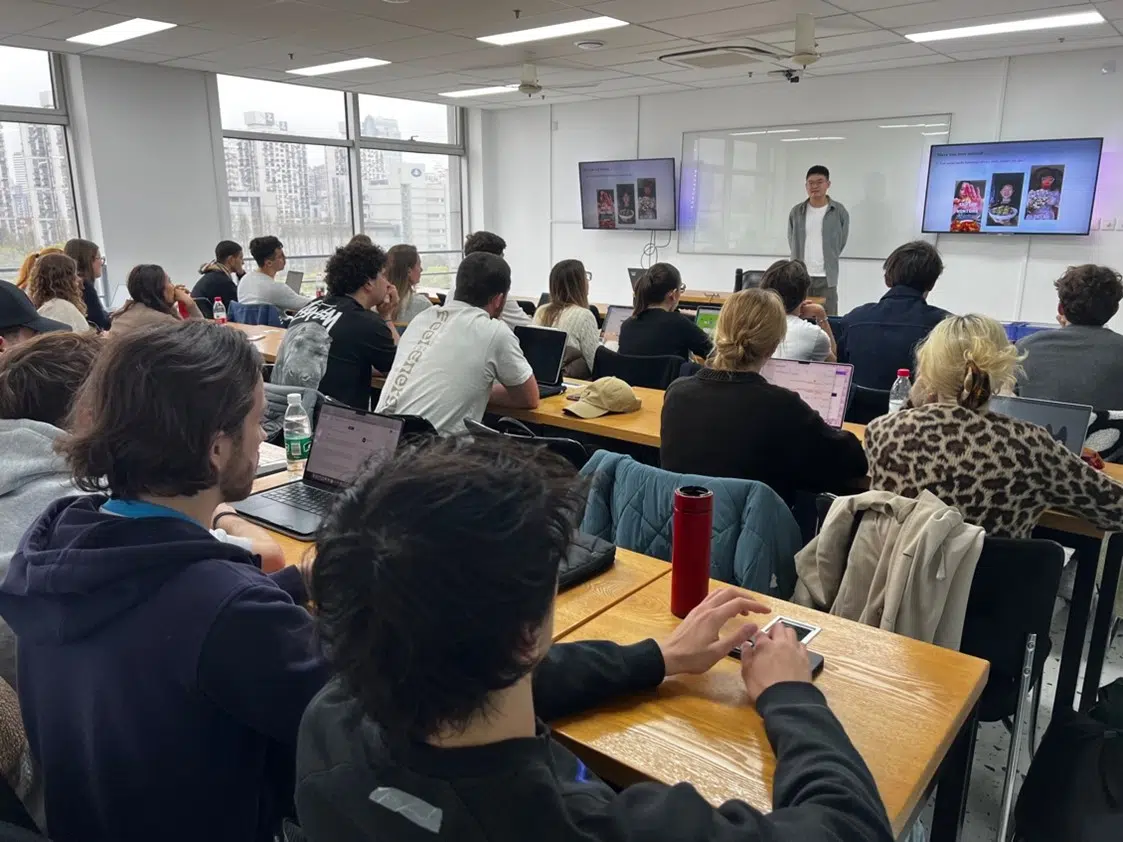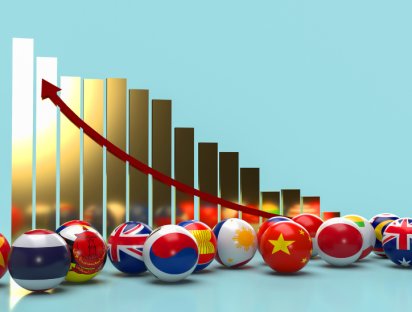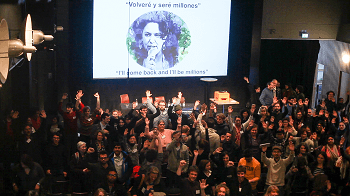Date: March 14th and 28th, 2025
Venue: ESSCA Shanghai Campus
Organiser: Dr Yixiong HUANG, EU*Asia Institute at ESSCA School of Management
In March 2025, the ESSCA Shanghai Campus and the EU*Asia Institute co-hosted the annual Digital Development in China public lecture series. Dr. Yixiong Huang, assistant professor at ESSCA Shanghai and member of the EU*Asia Institute, has invited Dr. Xu Yao (associate professor, Fudan University Development Institute) and Dr. Longxuan Zhao (assistant professor, Tongji University) to analyze China’s latest advancements in the digital economy, industrial innovation, and technological ecosystems for ESSCA students, faculty, and the public.
On March 14, Dr. Xu Yao of Fudan University explored the evolution of China’s AI and big data industries, contrasting policies and development strategies with those of the U.S. and EU. He highlighted key milestones since 2017, including the rise of ChatGPT and DeepSeek’s breakthroughs in reducing AI development costs.
Dr. Yao also introduced Chinese large language models (LLMs) such as Baidu’s Qwen, ByteDance’s Doubao, and the Shanghai AI Research Lab’s Shusheng, which rival ChatGPT in capability but may not be familiar to the Western public.
His analysis also addresses why Apple partnered with Alibaba for its Chinese AI services rather than Baidu due to the different origins of big data.
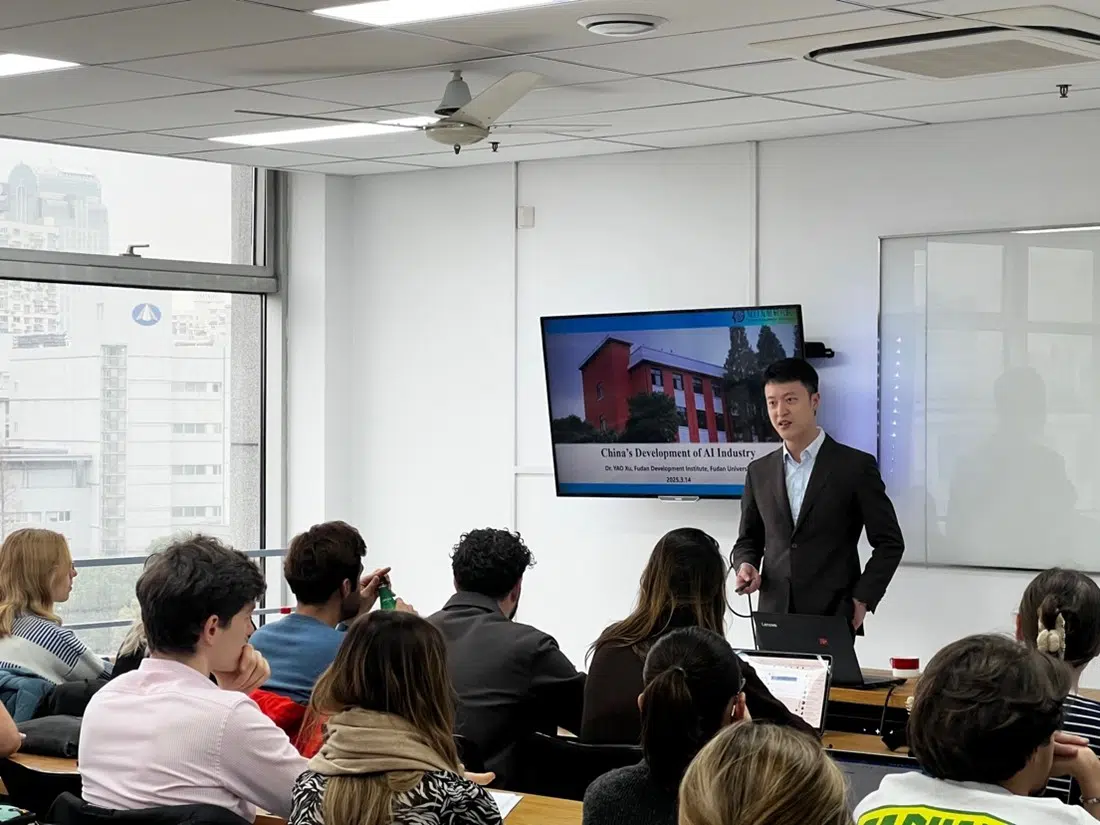
Dr. Yao further warned of four emerging AI risks: misinformation proliferation, data security threats, AI-driven cybercrime, and weaponization.
Against the backdrop of U.S.-China technological competition, he argued that these challenges complicate global AI governance. While acknowledging China and the U.S. as focal points, he emphasized Europe’s untapped potential in AI research, alongside opportunities for developing nations, such as India, to leverage cost-effective AI solutions like DeepSeek and open-source tools to overcome technical barriers.
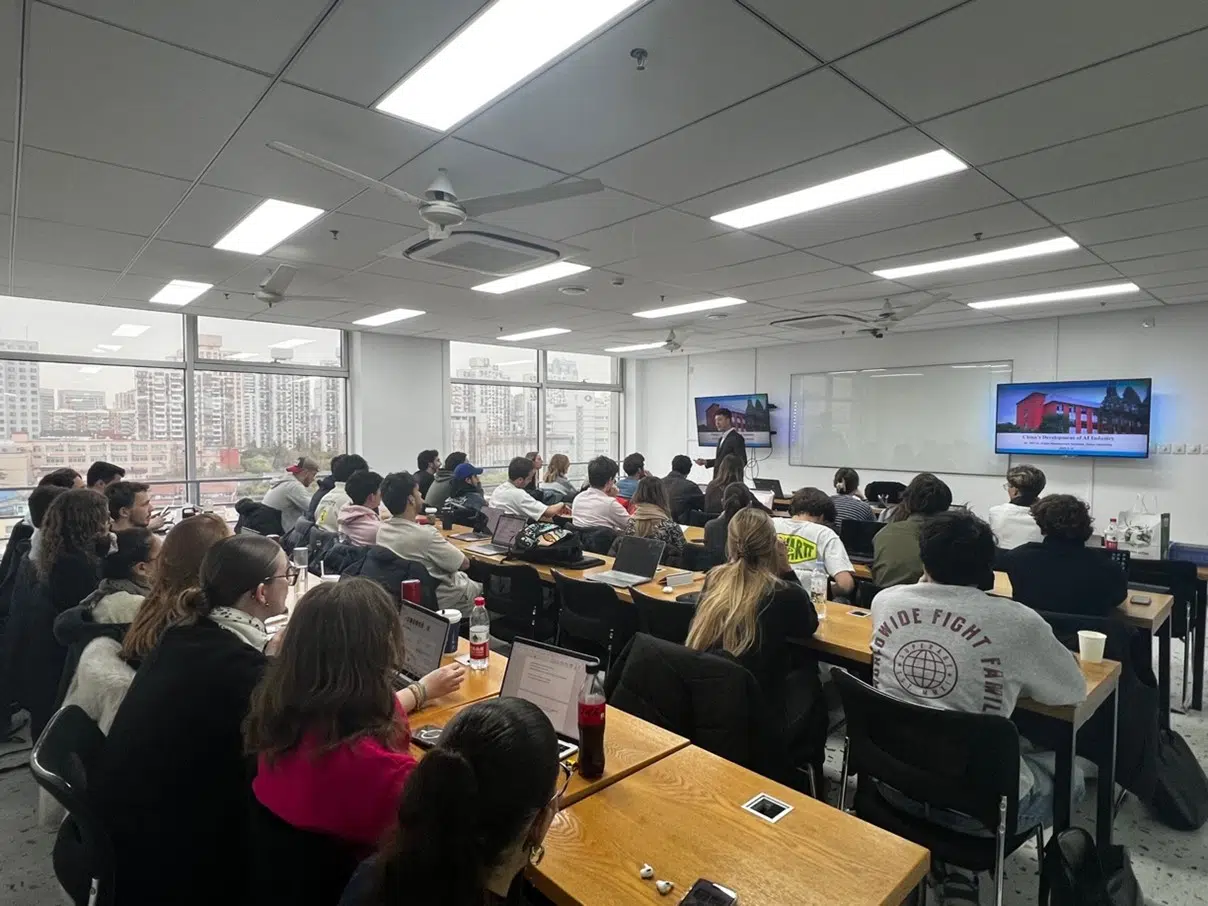
On March 28, Dr. Longxuan Zhao of Tongji University discussed how social media algorithms reinforce “information cocoons,” limiting users’ exposure to diverse viewpoints.
Drawing from his study of sexual minority communities on Zhihu (China’s Quora-like platform), he demonstrated how algorithms “banish” heterosexual users through strategies like sidelining and disorganizing content, while fostering LGBT communities via shielding and exclusionary spaces.
Dr. Zhao described this dual role as both a “protector” for marginalized groups and an “evictor” of other groups. The session concluded with a debate on whether individuals should actively seek to escape algorithmic filter bubbles.
The Digital Development in China series, organized annually by ESSCA Shanghai and the EU*Asia Institute, offers seminars, workshops, and public lectures to share the latest research and development on China’s digital transformation with academics, students, professionals, and the public.
Dr. Yixiong Huang, assistant professor at ESSCA Shanghai and member of the EU*Asia Institute, has coordinated and organized the series since 2021.
